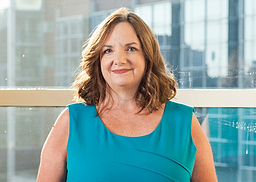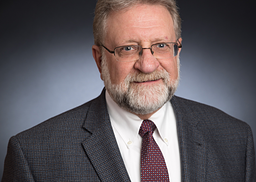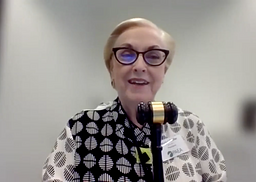Longtime MEDEX Faculty Member Gino Gianola Retires

Longtime PA educator, veterans advocate, and bioethicist Gino Gianola retired this past month from the University of Washington MEDEX Northwest PA program, where he taught for much of his career. Gianola was a familiar figure at both PAEA and AAPA meetings for decades, almost always in his trademark beret and bowtie.
Gianola became a PA in 1975, graduating in the eighth class from MEDEX Northwest, and he joined the faculty almost immediately. “It was literally a few hours after I graduated,” he recalled. “I was walking down the hall and [Program Director] Dave Lawrence, who later became CEO of Kaiser, asked me to join the faculty.” Gianola had learned about the fledgling PA profession while a clinical specialist in the US Army in Vietnam, where he saw a notice on a bulletin board asking people interested in a “new profession” to call then-Program Director Dick Smith. Smith was an important figure in 1960’s medical education credited with developing the MEDEX concept, an early variant of the developing field that became the PA profession. When he returned to the US, Gino made the call and was eventually accepted to the program (he often tells students how he was finally accepted on his third try).
On the faculty, Gianola taught a variety of courses, including problem-based learning, professional role development, and ethics — a subject in which he became deeply interested, earning a master’s degree in ethics in 2013, serving as chair of PAEA’s Ethics Committee from 2012-2016, and also coauthoring the code of ethics in the AAPA’s Bylaws. His interest in ethics was stimulated by his early experiences in Vietnam, when he took care of postsurgical patients in the ICU of a military field hospital and noticed how the burdens of war were borne disproportionately by minorities and the poor. “I noticed that all these kids about my age, coming out of bad surgeries, were mostly Black or brown or poor white kids; that bothered me a lot.”
Gianola has been a strong supporter of veterans throughout his career, advocating for giving veteran applicants some priority in the application process and credit for past military experiences. He wrote his master’s thesis on societal reciprocity to those who put themselves in harm’s way. “We have an ethical and social responsibility to look out for those who looked out for us,” he said.
In 1978, Gianola moved to the Washington, DC to work as the first PA at the National Institutes of Health (NIH) National Cancer Institute (NCI) on clinical trials for colon and rectal cancers. In time he began to see young male patients with Karposi’s sarcoma, which was related to a new largely unknown condition subsequently named AIDS. At NIH he worked with Dr. Anthony Fauci, director of the National Institute of Allergies and Infectious Diseases and currently the government’s most visible figure in the fight against the COVID-19 pandemic. In 1986, Gianola moved back to Seattle and resumed his teaching career at MEDEX.
PAEA, AAPA, the PA Foundation, and other organizations have all been the beneficiaries of his involvement. He has served on the editorial board of the Journal of the American Academy of PAs and as a feature editor for the Journal of Physician Assistant Education, as well as with older publications like Physician Assistant. He served in the AAPA’s House of Delegates and on the PA Foundation’s Board of Trustees.
Gianola plans to cook, garden, and stay involved with the Medex alumni association, as well as to continue to serve on the executive admissions committee for the University of Washington medical school, as he has done for some years. Looking back on his career, he is most proud of the “thousands of students I trained and the patients they cared for. That’s what I think about when I see them years later. And many became faculty,” he said. “I would always tell students, ‘You have two ears and one mouth; listen twice as much as you talk, and your patients will tell you a lot more. Silence is your friend.’”




